Giant Defy Advanced SL0 is a smooth operator that goes the extra mile
Owen Rogers finds Giant’s range-topping endurance bike does exactly what it says in the tin, but is it exciting?
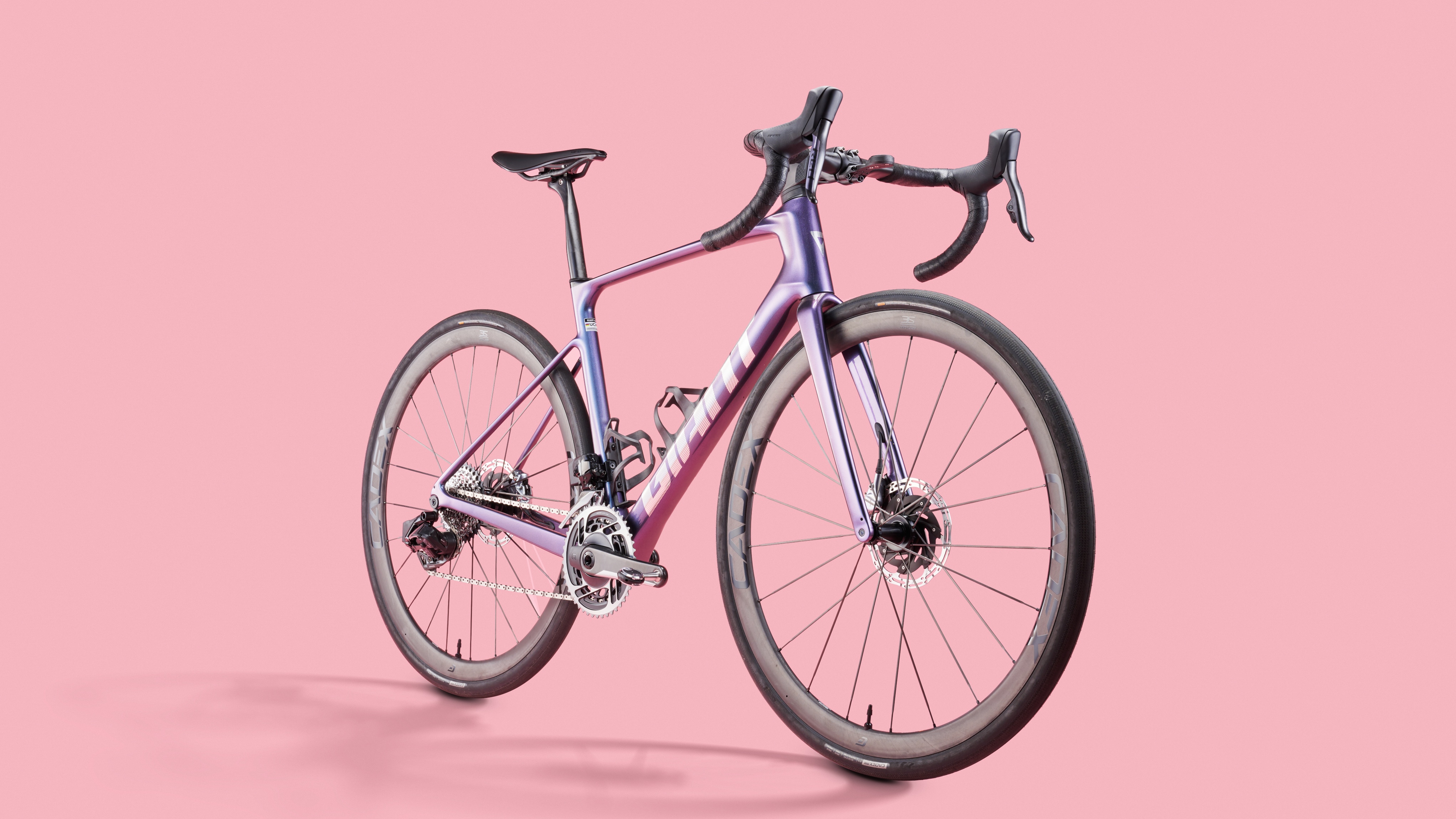
Giant’s promise that the Defy is lighter, faster and more efficient holds true, and you can add comfort and good looks to those characteristics too. The Defy is a fabulous endurance bike that delivers brilliantly.
-
+
Comfort
-
+
Lightweight - just over 7kg
-
+
Looks
-
-
Price
-
-
Less than sharp handling
You can trust Cycling Weekly.
The endurance bike category is a long-established niche in the road bike sector, with rideability the key attribute for those of us who have finally accepted that we’re not going to make it to the WorldTour.
Giant’s Defy, which has occupied a corner of this market for a decade, recently underwent a facelift, with the Taiwanese brand creating a bike, ‘specifically engineered for endurance road riding, delivering a smooth and efficient ride quality that minimises fatigue on long rides’.
The entire range received a makeover, with nine models built around three frames - the Advanced, Advanced Pro and the Advanced SL. These cost from £2,299 for the entry-level Advanced 3 (or $3,200 for the Advanced 2 in the US), to an eye-watering £11,449/$12,000 for the range-topping Advanced SL0.
For this test, Giant sent us the aforementioned Advanced SL0, which comes equipped with SRAM Red aTap AXS, a Quarq power meter and Cadex wheels. Lucky us.
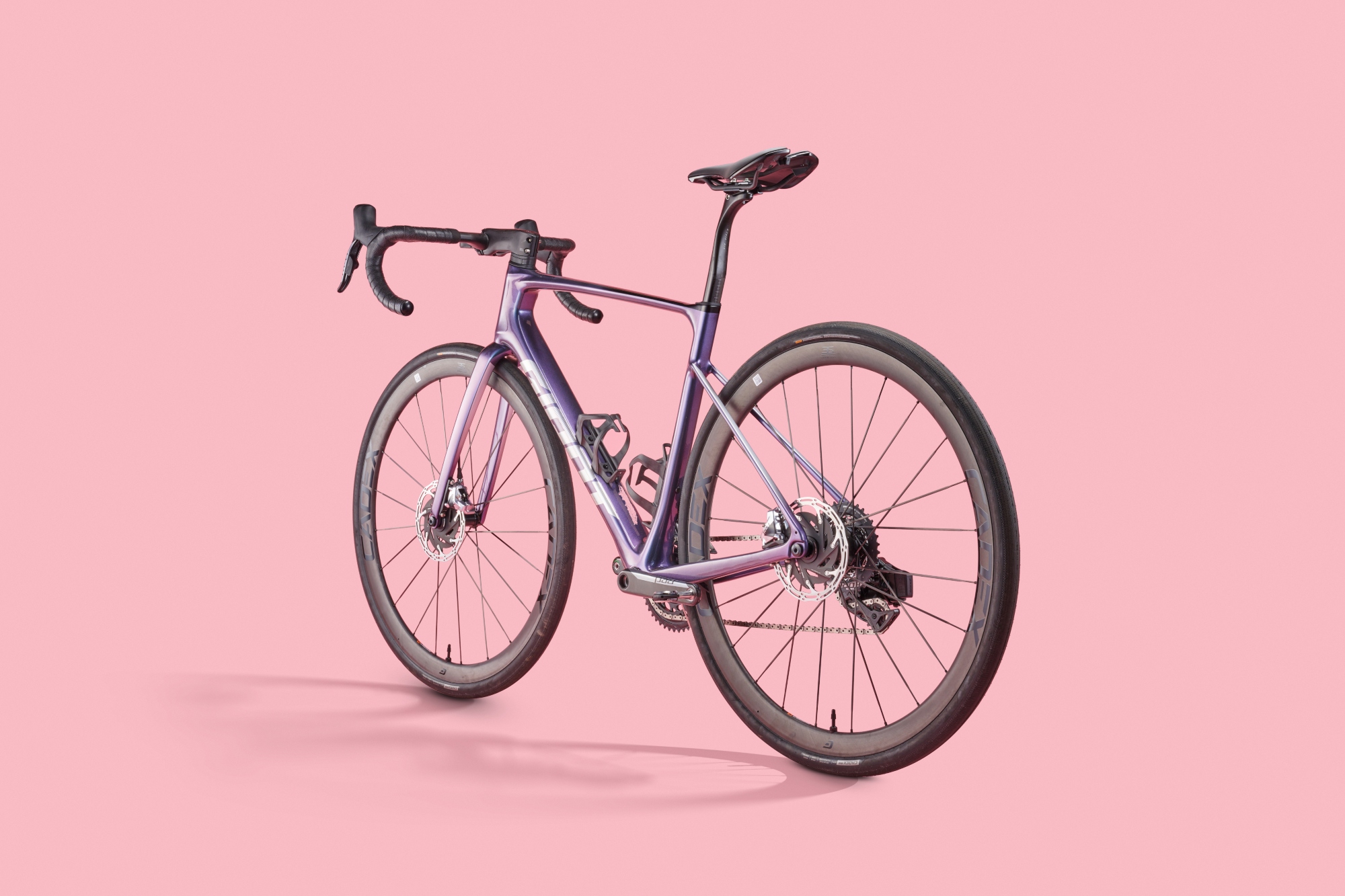
Giant Defy Advanced SL0 construction
About the tester
Owen Rogers, freelance journalist
My local roads in Cambridgeshire provide plenty of opportunities to ride on poor road surfaces to test the bike’s shock absorption qualities. Hills are harder to come by.
In search of genuine use for the little ring, I headed towards Bedfordshire where you can find some short, steep digs. And, gasping on the wheel of a racer friend, the roads around Oundle in Northamptonshire produced a little more variety and slightly longer slopes.
Every part of the frame and fork has been reengineered, the bar stem and seat post too, though it’s more evolution than revolution. ‘Less weight, better ride quality, no gimmicks’ boasts the launch book. Yes, tyre clearance has increased to 38mm and there are well-hidden fender mounts, but you’ll be hard-pressed to see the difference between this and the previous model.
Giant has pursued a line of ‘functional simplicity’, keeping weight down, improving durability and easing maintenance needs to achieve a blend of smoothness, lightness and efficiency. So, the frame is not only lighter, but stiffer and more compliant too.
These gains have been achieved by altering the carbon layup. Our bike’s SL frame now features up to 132 swaths of carbon composite, yet the front triangle uses fewer sections of material, thus reducing weight and increasing strength. Notably, the top tube is hand-woven into the seat tube, creating a lighter, stronger junction.
The latest race content, interviews, features, reviews and expert buying guides, direct to your inbox!
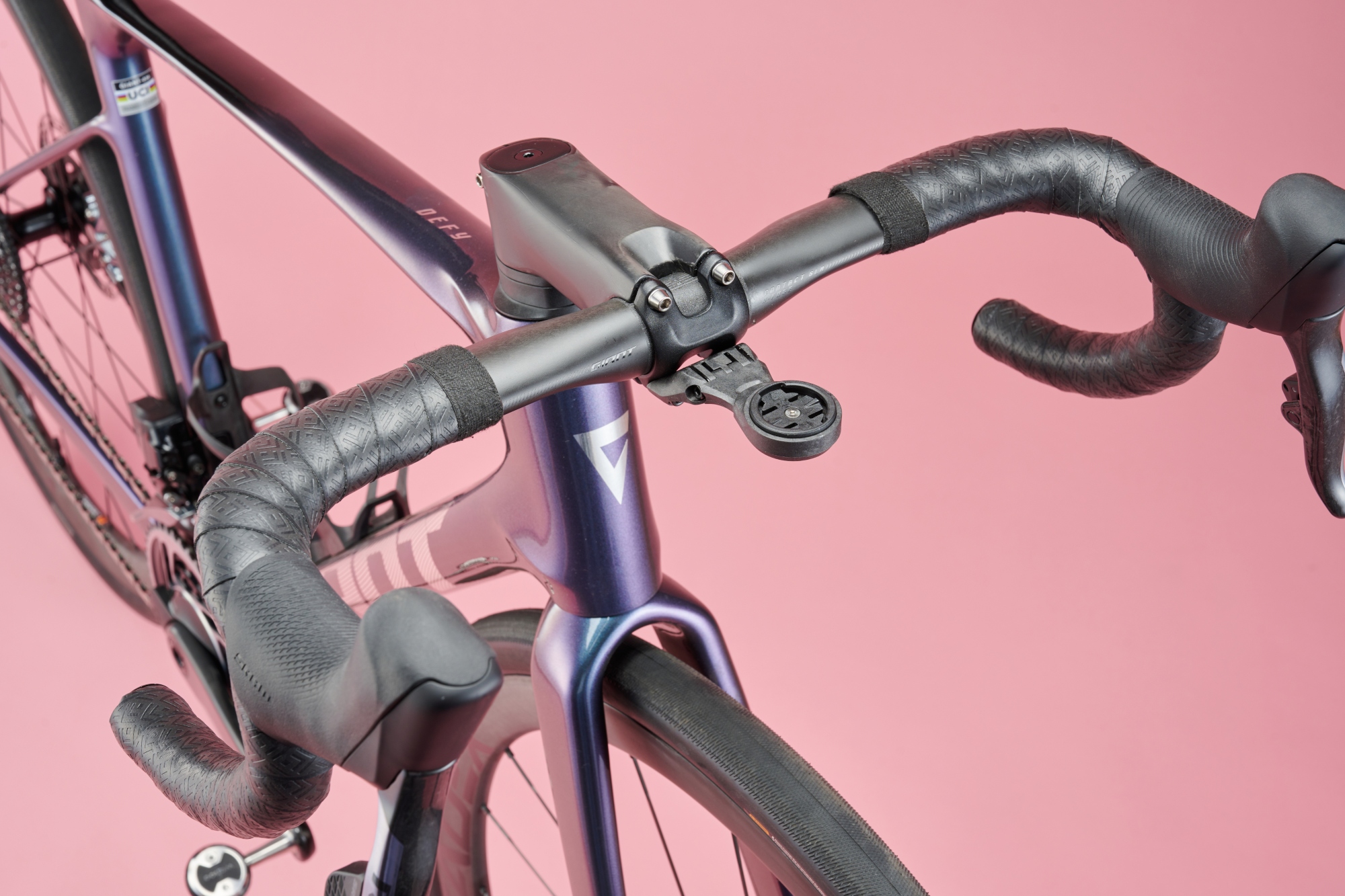
This has blessed our SL frame with what Giant says is a 28% increase in stiffness-to-weight ratio, while reducing the weight of a size medium by a full 195g to just 785g.
There’s no integrated cockpit, instead the Defy comes with Giant’s SLR D-Fuse bars and chunky Contact SLR Aerolight stem. The bars have redesigned tops and a gravel bike-style 8º flare on the drops, both for increased comfort. The D-Fuse technology has been around for 10 years on its seat posts, and while both bars and post are D-shape, the concept is about flex - again for increased comfort.
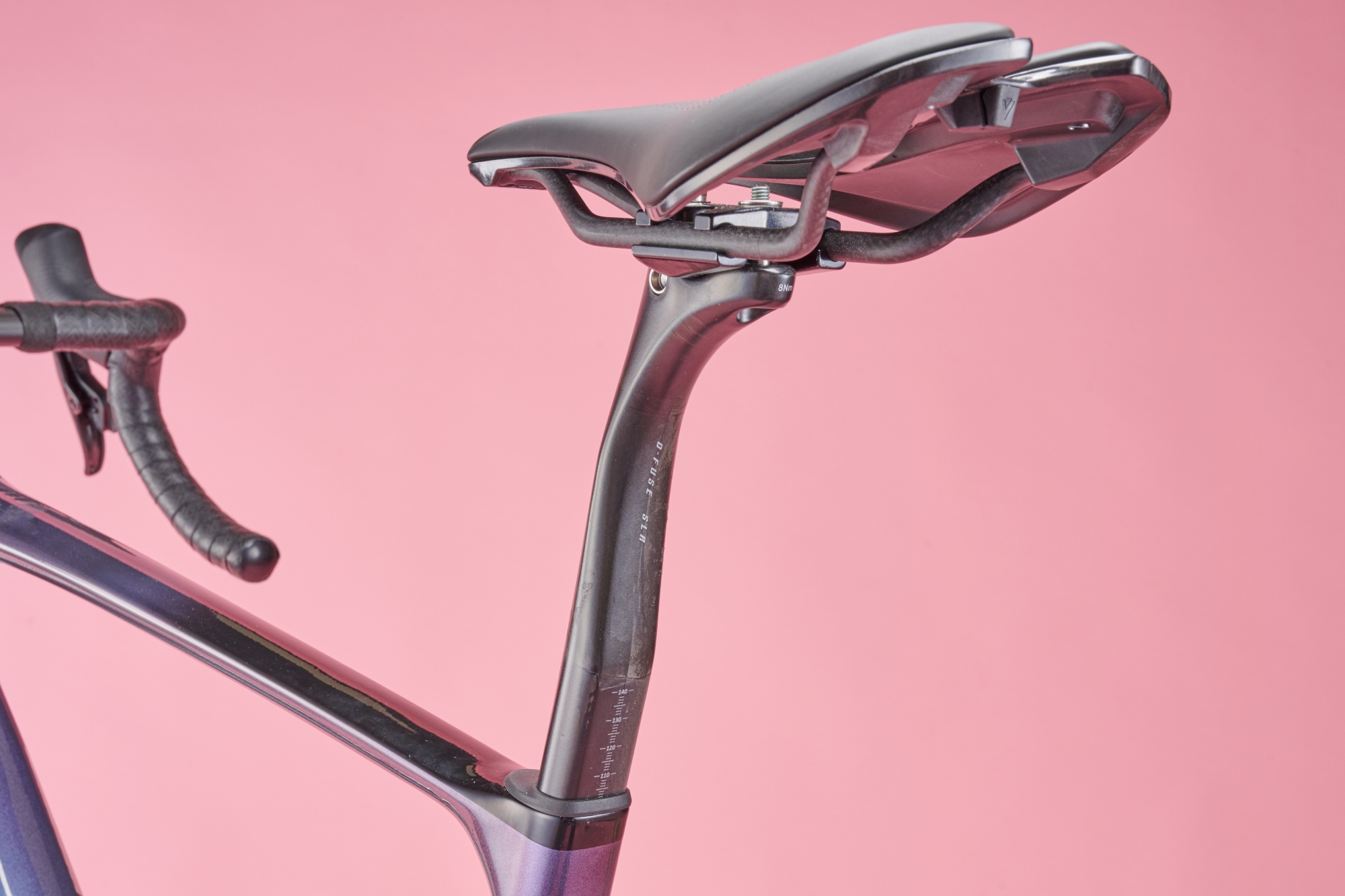
While the rest of the range uses Giant-branded wheels, the SL0 rolls on 36mm deep wheels from Cadex, the company’s premium component brand. At 1302g for the pair they conform with the Defy’s lightweight mantra and sport hookless rims fitted with tubeless 32mm Cadex Classics tyres.
Giant Defy Advanced SL0 ride quality
Many of Giant’s claims for the new Defy focus on the smoothness of its ride, so there was no better place for me to try it than the B1046 road between Gransden and Longstowe, near Cambridge in the UK. Potholes, tarmac scabs, cracks and ridges punctuate an already poor four-kilometre stretch, but with a tailwind and the Defy I hit it head on. You know what? It made light work of a road I usually avoid.
I still felt the bumps, but the clattering and jarring that usually makes this road so miserably unpleasant were absent, making it easier on the body and good for speed.
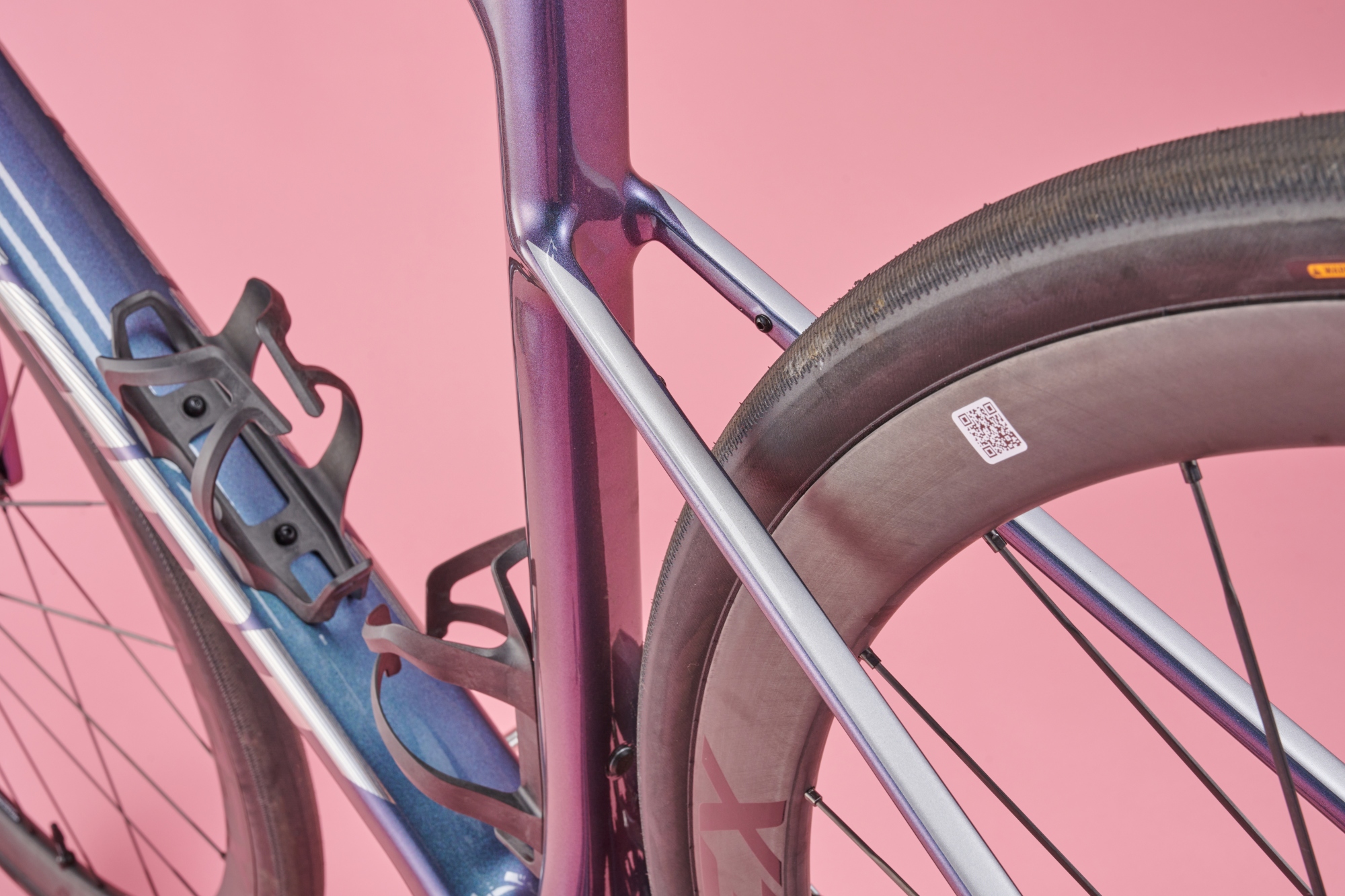
Of course, no bike can completely even out the B1046, or roads like it. The Defy is more about smoothing imperfections, allowing the rider more time in the saddle, a quality it achieves with aplomb. Giant has found a way to isolate the rider from poor surfaces, while still keeping a positive connection to the road. It's a fine balance that combines a good level of comfort with plenty of feedback. If improved flex is key to this, there’s no hint of sloppiness in the frame.
At speed, on what we call descents in Cambridgeshire, you can hit bumps with little fear of being thrown offline. Hit a stone mid-bend and the Defy stays resolutely where you want it. It usually takes me a few miles on a new bike before I’m confident enough to lift both hands off the bars, but on the Defy it took less than 100 metres. It’s a bike with handling that inspires trust.
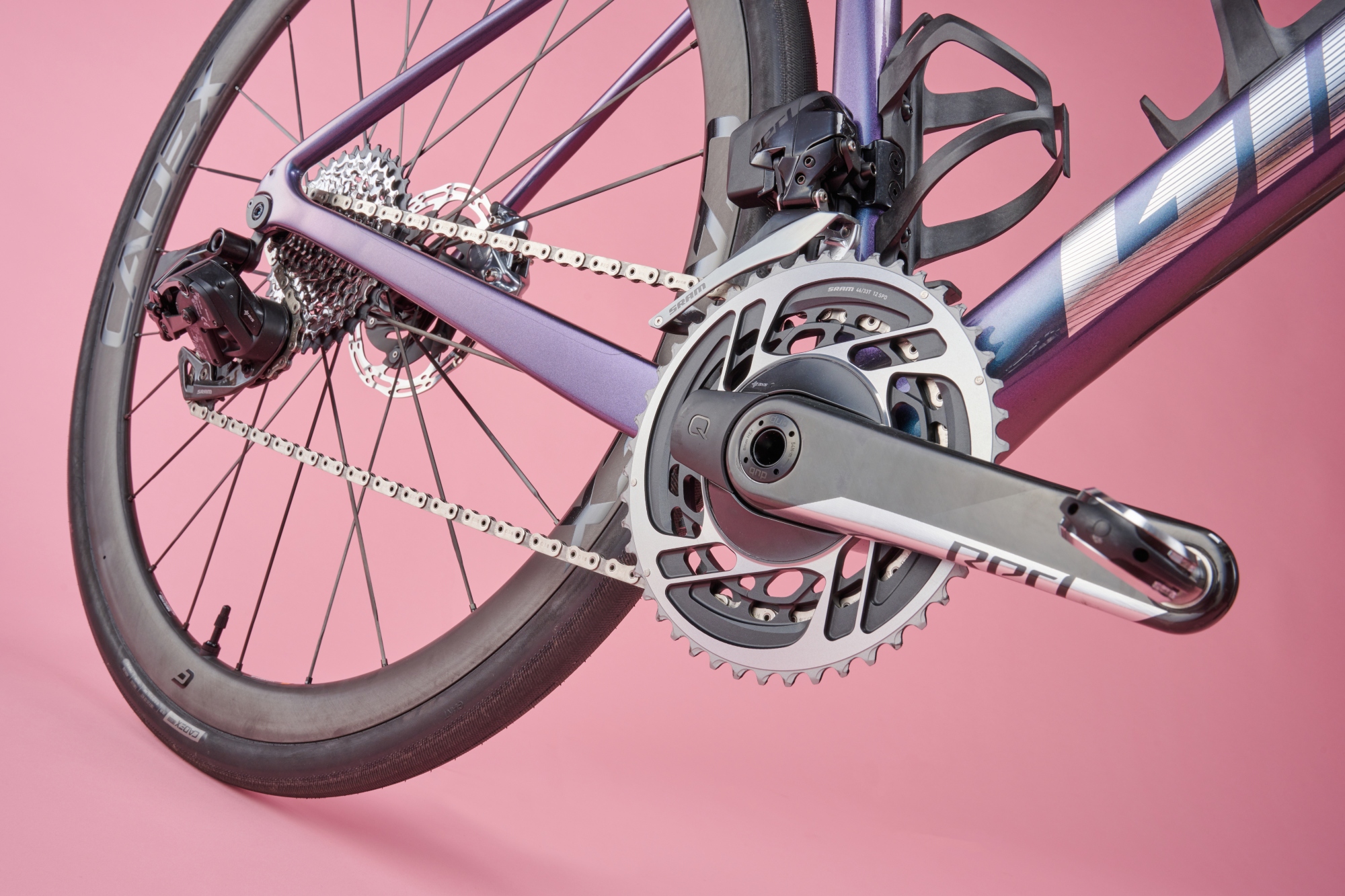
So, with its long wheelbase and relaxed geometry the Defy is a steady ship. Giant says it’s the ‘perfect choice for the sportive or gran fondo that’s circled on your calendar’. Perfect, if that’s the kind of bike you’re looking for, but just be aware that your £11,499 / $12,000 isn’t going to buy you exciting handling or race bike reactions.
It doesn’t do race bike speeds either. Don’t get me wrong, it’s fast, but it doesn’t feel it, more turbine than turbo, more Bentley than Ferrari. It’s not straining at the leash or trying to intimidate you at every corner. Some might say that’s less exciting, but I’d counter by maintaining it’s more refined. Classy even. And, there’s nothing wrong with that.
The SRAM Red eTap AXS groupset provides excellent braking and wonderful shifting. The 46/33 chainset coupled with a 10/36 gives a huge spread of gearing, but the spacing of those sprockets meant I was occasionally unable to find the right ratio. My ideal cadence is around 94, but in one section with a brutal crosswind I had the choice of spinning at 100 rpm or grinding at 88, with nothing between.
Verdict
Giant never promised startling innovation with this update and, other than the gorgeous Blue Dragonfly colourway, it’s understated. Except for the price.
For £11,499 / $12,000 most of us would expect the Defy to do everything. Well, real gravel might be beyond it - despite the maximum 38mm tyre clearance - but road racing is not. You might want to change the tyres and maybe the gearing, but there is no doubt you can race this bike. Just be aware that the handling is sharp, but never pin sharp.
And at £500 cheaper than the almost identically equipped Specialized S-Works Roubaix SL8, it seems good value in today’s inflated market.
Giant’s promise that the Defy is lighter, faster and more efficient holds true, and you can add comfort and good looks to those characteristics too. The Defy is a fabulous endurance bike that delivers brilliantly. I just wish I had it through summer.
Specification
- Frame: Advanced SL-grade composite disc
- Fork: Advanced SL-grade composite, full composite OverDrive Aero steerer
- Groupset: SRAM Red eTap AXS
- Power Meter: Quarq DZero
- Wheels: CADEX 36 36mm
- Tyres: CADEX Classic 32c
- Bar: Giant Contact SLR D-Fuse
- Stem: Giant Contact SLR AeroLite
- Seatpost: Giant SLR D-Fuse composite -5/+15mm offset
- Saddle: Giant Fleet SLR
- Weight: 7.3kg
- Size tested: Medium
- RRP: £11,499 / $12,000
Owen Rogers is an experienced journalist, covering professional cycling and specialising in women's road racing. He has followed races such as the Women's Tour and Giro d'Italia Donne, live-tweeting from Women's WorldTour events as well as providing race reports, interviews, analysis and news stories. He has also worked for race teams, to provide post race reports and communications.